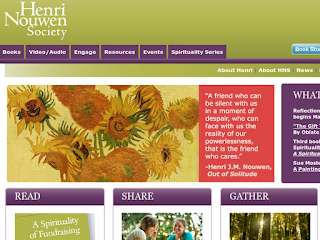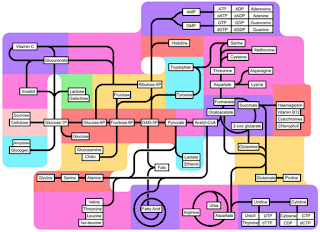This is a repost of something I wrote in June. It seems appropriate to use it as link six in a chain blog started by Alan Knox on the topic 'One Another'.
Showing is more powerful than telling. Doing and showing is how Yahshua often revealed the truth. That doesn't mean he didn't use words, but he did things like washing his follower's feet and then used words (if necessary) to clarify the meaning of the action.
To love or to judge? - A difficult situation arose amongst friends recently, and the Spirit of Christ showed me that the best way to resolve it will be to demonstrate love. Isn't this always the best way? I think so.
We are not called to put one another right. We are called to accept one another just as we are, to love the unlovable. If I cannot do this, how will I ever love anyone? And if those around me can't do this, how will I ever be loved? Papa loved us long before we began to love him. If I am truly made in his image I will love others before they love me. Sometimes this may be very hard - but it is also very necessary.
If I demonstrate love and others copy my example, great benefit and joy and peace will result! If I demonstrate judgement and others copy my example, great misery and shame and angst will result. Why do we find it so hard to go first in love? And why do we find it so easy to go first in judgement?
Henri Nouwen understood these principles. The quote below is a meditation from the Henri Nouwen Society website. You might consider signing up for these emails yourself, they are always helpful and always so gentle and wise.
Small Steps of Love - How can we choose love when we have experienced so little of it? We choose love by taking small steps of love every time there is an opportunity. A smile, a handshake, a word of encouragement, a phone call, a card, an embrace, a kind greeting, a gesture of support, a moment of attention, a helping hand, a present, a financial contribution, a visit ... all these are little steps toward love.
Each step is like a candle burning in the night. It does not take the darkness away, but it guides us through the darkness. When we look back after many small steps of love, we will discover that we have made a long and beautiful journey.
In the life of Jesus - Here are some other examples from the life of Jesus (there are many more, the gospels are full of them). Jesus was quick to feed the hungry crowd, speak to the woman at the well, call to Zacchaeus in the sycamore fig tree, die for our sin, release the woman caught in adultery, heal the sick, cast out demons, turn water to wine. In every case people were needy, inconvenient, sinful, unlovable, pressing in, without hope. In every case Jesus touched them in their need and error and unloveliness.
Here's a challenge. Who will you find to love today? And how will you express that love?
See also
- Henry Drummond wrote an essay called 'The greatest thing in the world'. It's on love and is available as a free download. Highly recommended.
- Greg Gamble's list of 'The One Anothers' as basic rules of engagement for believers.
This post is the sixth link in a chain blog, started by Alan Knox, on the topic 'One Another'. Please have a look back through the other links and comments to join in the topic. You can even join in the chain – read the rules below to participate.
Links in the 'One Another' Chain Blog
- Chain Blog: One Another - Alan Knox
- Linking One Another - Swanny
- What Does It Mean to Love One Another? - Chuck McKnight
- The treasure of 'One Another' - Jim Puntney
- This is how the world shall recognise you... - Kathleen Ward
- Accepting one another in love - Chris Jefferies
- One Another-ing: A meta-narrative for the church - Greg Gamble (also see part 2)
- Individualism and 'one another' - Pieter Pretorious
- All Alone with One Another - Jeremy Myers
- When it's OK for Christians to compete - Joshua Lawson
- Jesus Christ: the Corner Stone for One Another - Peter
- Be Superficial With One Another - Jon Hutton
- The Unmentionable One Anothers - Alan Knox
- Loving more fully and widely - Chris Jefferies
- The one another weapon - Dan Allen
- Corporate one anothering (Part 1) and (Part 2)- David Bolton
- The last revival - Tobie van der Westhuizen
- Love: a 'one another' comic - Dan Allen
- I can only love you if... - Rob
- Who will write the next link post in the chain?
- If you would like to write the next blog post (link) in this chain, leave a comment on the most recent post stating that you would like to do so. If someone else has already requested to write the next link, then please wait for that blog post and leave a comment there requesting to write the following link.
- Feel free to leave comments here and discuss items in this blog post without taking part in the actual “chain.” Your comments and discussion are very important in this chain blog (both this post and the other link posts in the chain).
- When you write a link in this chain, please reply in the comments of the previous post to let everyone know that your link is ready. Also, please try to keep an updated list of links in the chain at the bottom of your post, and please include these rules at the bottom of your post.


























